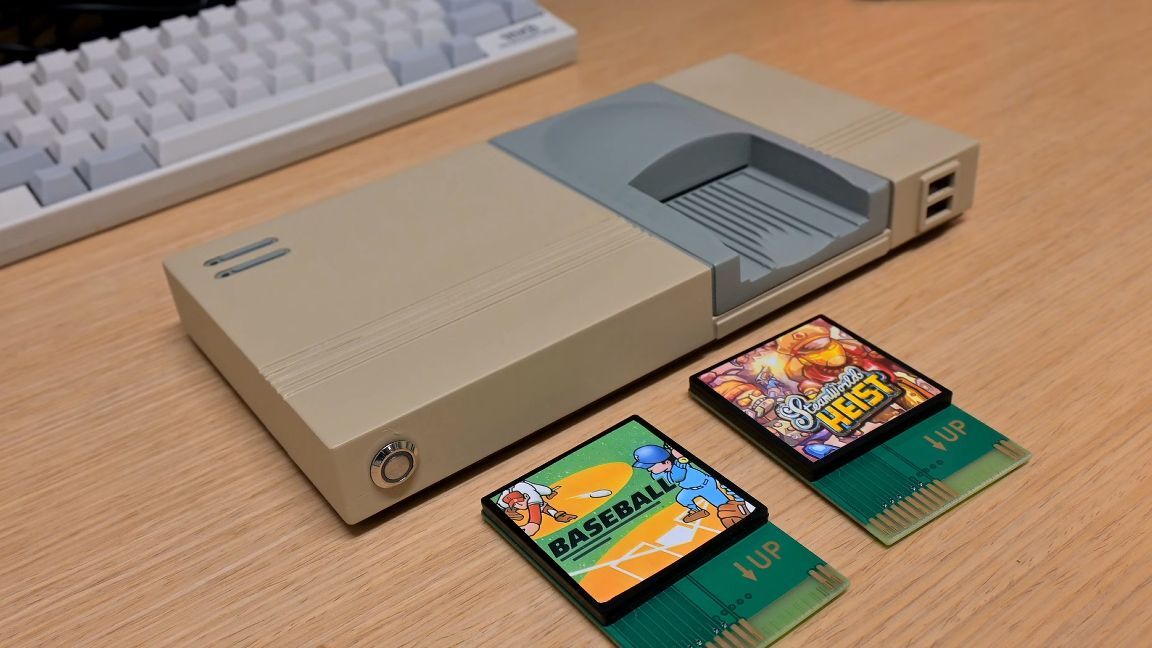Some of us find ourselves drawn to the unique charm of retro hardware. One new creation that captures this sentiment is Game.Work by Abe Haskins - an innovative piece of art inspired by the vintage aesthetic.
Abe Haskins has meticulously crafted a retro gaming console that harkens back to the days of yore when plastic hardware and chunky cartridges were the norms. The Game.Work system, built around a Framework mainboard, showcases a custom case inspired by the TurboGrafx-16 while still integrating modern functionality.
The console also features cartridges that serve as storage media for games, with labels flaunting game artwork to replicate the retro experience. These cartridges are connected through a custom slot on top of the machine.
The console’s case is primarily 3D-printed but boasts additional hardware like an acrylic board for the motherboard attachment, a metal back plate for stability, and rubber feet to keep it stationary during gameplay. The entire project has been made open source by Haskins, allowing enthusiasts worldwide to recreate or further develop their versions of this nostalgic gaming system.
The Game.Work console integrates the Framework mainboard, from a modular laptop specialist with easy upgradeability.
For those eager to dive deeper into this unique project and witness it come to life, Haskins has shared an official project video on YouTube. Follow him for more updates.
It’s a testament that sometimes, you really can’t escape the plastic nostalgia!



depends on which system you are emulating, and what framerate etc. maybe this could support lagless data input, or 4K upscaling or torrenting in the background.
It also depends on the accuracy of the emulator. Cycle accurate emulators demand horsepower (or an FPGA). Less accurate (but still perfectly playable) emulators can run on potatoes, but I can feel the difference on games I grew up playing. I’m almost as good as I was as a kid when I play on an accurate emulator or FPGA, but on a Raspberry Pi I tend to be noticeably worse.
That may not matter to everyone, but it matters to me.